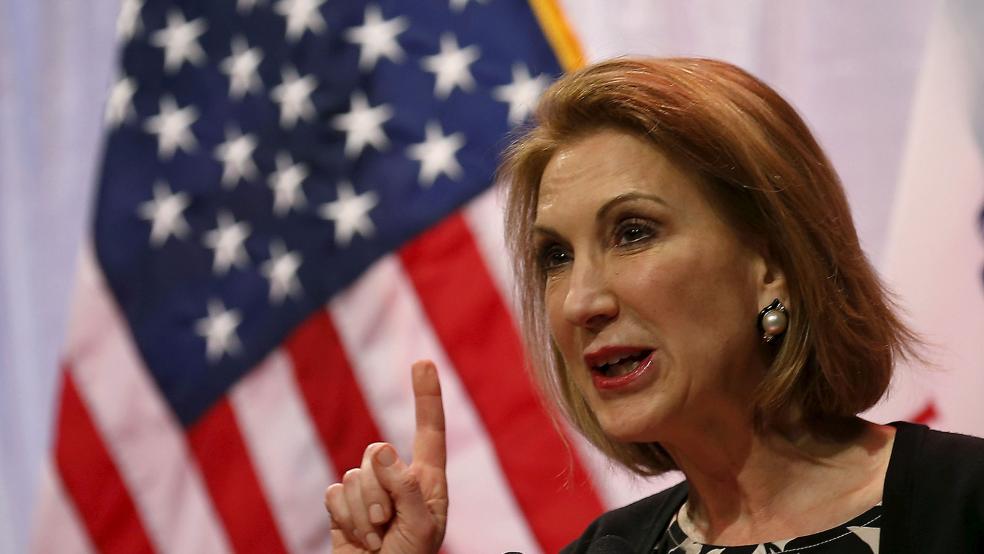The Republican 2016 presidential primary has been a strange race for a number of reasons, not least of which has been the tacit agreement among many of the candidates that the literal truth of what they say is a secondary concern at best, trailing well behind the effect it has on public opinion in importance.
Between Donald Trump’s braggadocio and Ben Carson’s thinly supported autobiographical assertions, there has been an obvious willingness among the candidates to push the boundaries of behavior that, in another age, would have been regarded simply as lying. The trend was trend nicely documented by The New York Times’ Michael Barbaro over the weekend.
Related: As Carson Stumbles, Trump Slowly Turns the Knife
On Sunday, in a taped interview with Meet the Press, former Hewlett-Packard CEO Carly Fiorina began expanding the envelope in a different direction. Asked when she planned to release details of her plan to overhaul the tax code – something almost all of her competitors have done – she said that not only does she have no intention of doing so but also that she doesn’t see the need to provide specifics on major policy issues.
In response to host Chuck Todd’s question about whether she planned to release details of her tax plan, she said, “Well, let me disagree with the premise of your question. How often do politicians put out detailed plans? How often do they get enacted? Never. That's the problem. Politicians put out detailed plans for all kinds of things that never happen.”
She said voters are welcome to go to her website and submit individual questions, some of which she answers in video format.
“In other words, I am being held accountable. A plan. Anybody can write a plan. Anybody can put a plan on a website. It's another thing to say, ‘You know what I think we need to do?’ And say it over and over again in public and be held accountable for this.
“You know what I think we need to do? We need to go from a 73,000-page tax code, which is what we have today, with 4,000 changes since 2001, we need to get it down to about three. And what that means is we need to close every loophole and lower every rate,” she said.
Related: Chris Christie Should Be Glad He Was Dropped to the Undercard Debate
“Why won't you show us your work?” Todd asked.
The question might come off as pedantic on the surface, but Todd’s query actually cut straight to the point. Blithe promises to, with a wave of the hand, overhaul the mechanism by which the government overseeing the planet’s largest economy funds itself don’t deserve to be accepted at face value.
But Fiorina bristled at the idea that her brief video replies to voters are somehow less serious than detailed proposals from experts in tax law.
“So in other words, words on a piece of paper are more accountable than words said to people, looking them in the eye?” she demanded. “I don't think so. I don't think that's what voters think. Because I think voters have gotten smart enough to know that plans and paper, 50-point plans, ten-point plans, five-point plans, are written by a bunch of advisors and consultants. So I'm perfectly prepared to be held accountable for my words and my plans.”
Related: Trump Plays It Safe on SNL and Gains Nothing
One of the many problems in that statement is the assumption that plans written by a presidential candidate’s advisors and consultants are somehow illegitimate or not indicative of the candidate’s likely behavior while in office.
No adult who has given any thought to how policy is developed in Washington believes that a president personally drafts all of the administration’s legislative proposals. They don’t and they can’t. In truth, a presidency is in large part defined by the advisors and consultants a president decides to listen to – and those he or she decides to ignore.
Near the end of her interview with Todd, Fiorina insisted, “I’ve given you a tax plan. I've given you a tax plan. It needs to be three pages. And the only way to get there is to lower every rate and close every loophole.”
How that will all work in the end is, in Fiorina’s view, not of interest to the voters it will affect.





